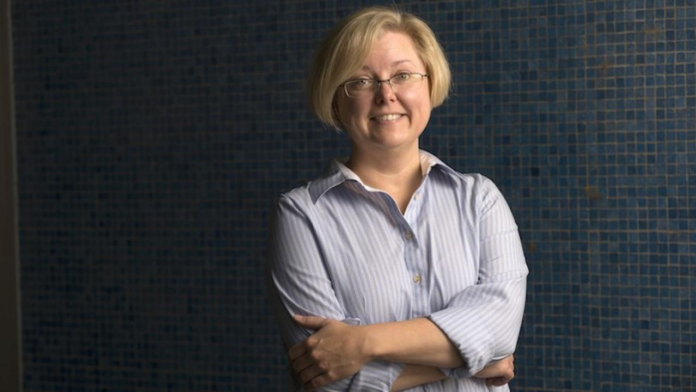In an effort to highlight the work of UC Davis’ researchers, The California Aggie is showcasing a series featuring women who have been contributing to a better understanding of COVID-19
Although the current nasal swab used to test for COVID-19 has proven to be effective, one might wonder if there could be a more comfortable way to detect this virus rather than inserting a Q-tip into the nasal cavity. Cristina Davis, a professor and department chair of mechanical and aerospace engineering, and her team might just have the solution.
Davis has proposed a device that collects metabolites—small molecules created in the process of metabolism—in the breath of patients. These metabolites can then be run through a diagnostic platform to detect the presence of the virus, and although they are at a lower concentration in the exhaled breath than in the bloodstream, the metabolites are detectable to distinguish someone’s health status.
“When you’re healthy, your metabolites have one profile, and when you get sick or if something changes about your health, some of those metabolites change,” Davis said. “And so our question was, could we try to detect what metabolites change with COVID-19?”
As exhaled breath is easily collectable, this method would be less invasive and potentially yield faster test results in the future than the current PCR method. According to Davis, the PCR tests used in tandem with nasal swabs are reliable, but the reagents needed to run it are in short supply. Since different materials are used for the exhaled breath diagnostic method, this means there is a potential that more tests can be administered throughout the country with less restrictions on who can receive one.
Currently, Davis and her team are collecting breath samples from patients at the UC Davis School of Medicine who have had the Sars-CoV-2 infection in addition to patients with other respiratory diseases as Richart Harper, a professor in the division of pulmonary and critical care at the UC Davis Health, explained. In theory, patients may be able to collect their own samples from home without medical supervision in the future.
“The goal is to have something where you don’t have to stick a swab down someone’s nose or in their throat or do blood tests,” Harper said. “You could just have them breathe into a device and then it could tell you whether or not there’s a virus present.”
Davis explained that, as they continue to collect samples, they are creating a library to compare the samples of healthy patients, COVID-19 patients, patients with other respiratory infections and so on. Through these comparisons, she hopes that they may be able to figure out if there are any correlating factors as to why some people get more sick than others.
Michael Schivo, an associate professor of internal medicine at UC Davis Health, added that they may also be able to track the progress of patients receiving different treatments by sampling their breath.
As an engineer, Davis believes that all engineers are inspired to help humanity and become inspired by new challenges they can tackle to help others. She also explained that oftentimes, when these big problems arise, people from different expertise need to come together, demonstrating the power of interdisciplinary research. With this current project, Davis is working closely with clinicians and clinical research scientists such as Harper, Schivo and Nicholas Kenyon, the division chief of pulmonary, critical care and sleep medicine.
“Cristina is a fantastic example of somebody who extends her knowledge, her productivity and her lab well beyond her immediate circle,” Schivo said. “She’s been a really good example of somebody who reaches out to multiple different groups representing multiple different disciplines to really create some fantastic products.”
For students interested in going into the research field, Davis advises to keep an open mind regarding the trajectory of one’s career. She stated that someone once gave her advice that one should not be working on the same problem for 20 or 30 years, but rather look towards the next problem to tackle.
“Don’t be complacent. Try new things,” Davis said. “Sometimes they don’t work out; that’s okay. Sometimes they do work out; that’s really exciting. But you have to always be trying new things. I think that’s a key part of success.”
Written by: Michelle Wong — science@theaggie.org




